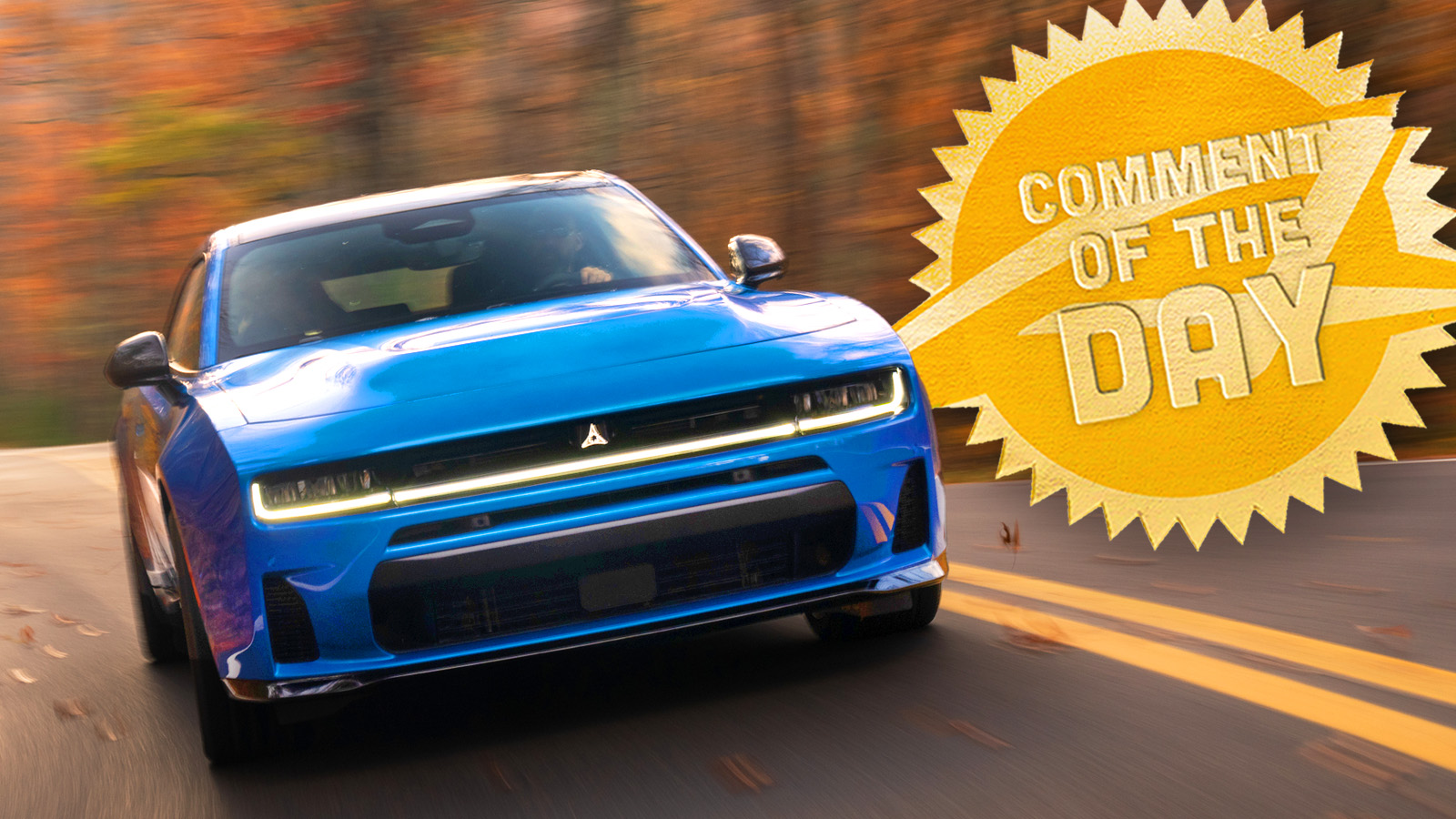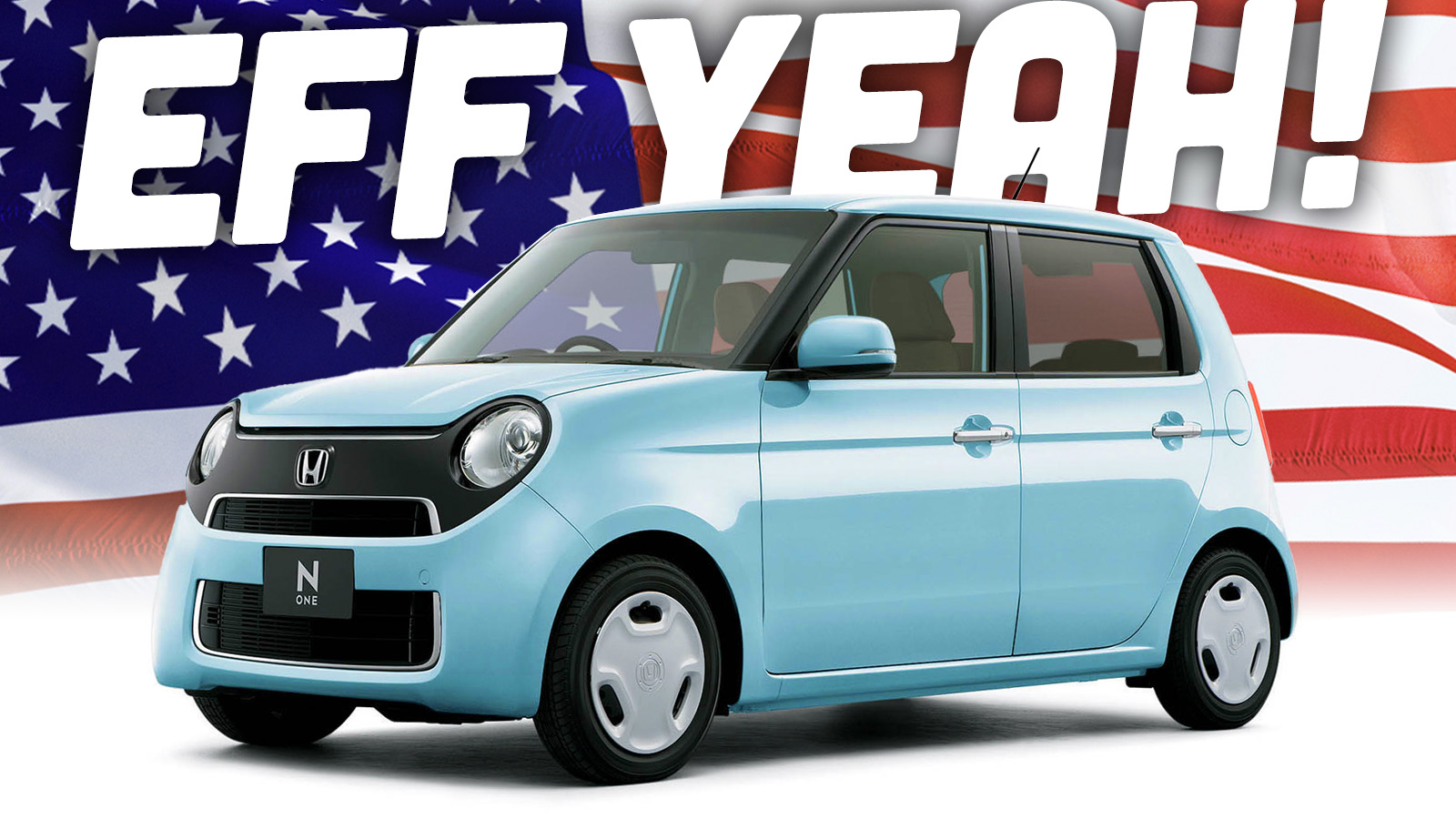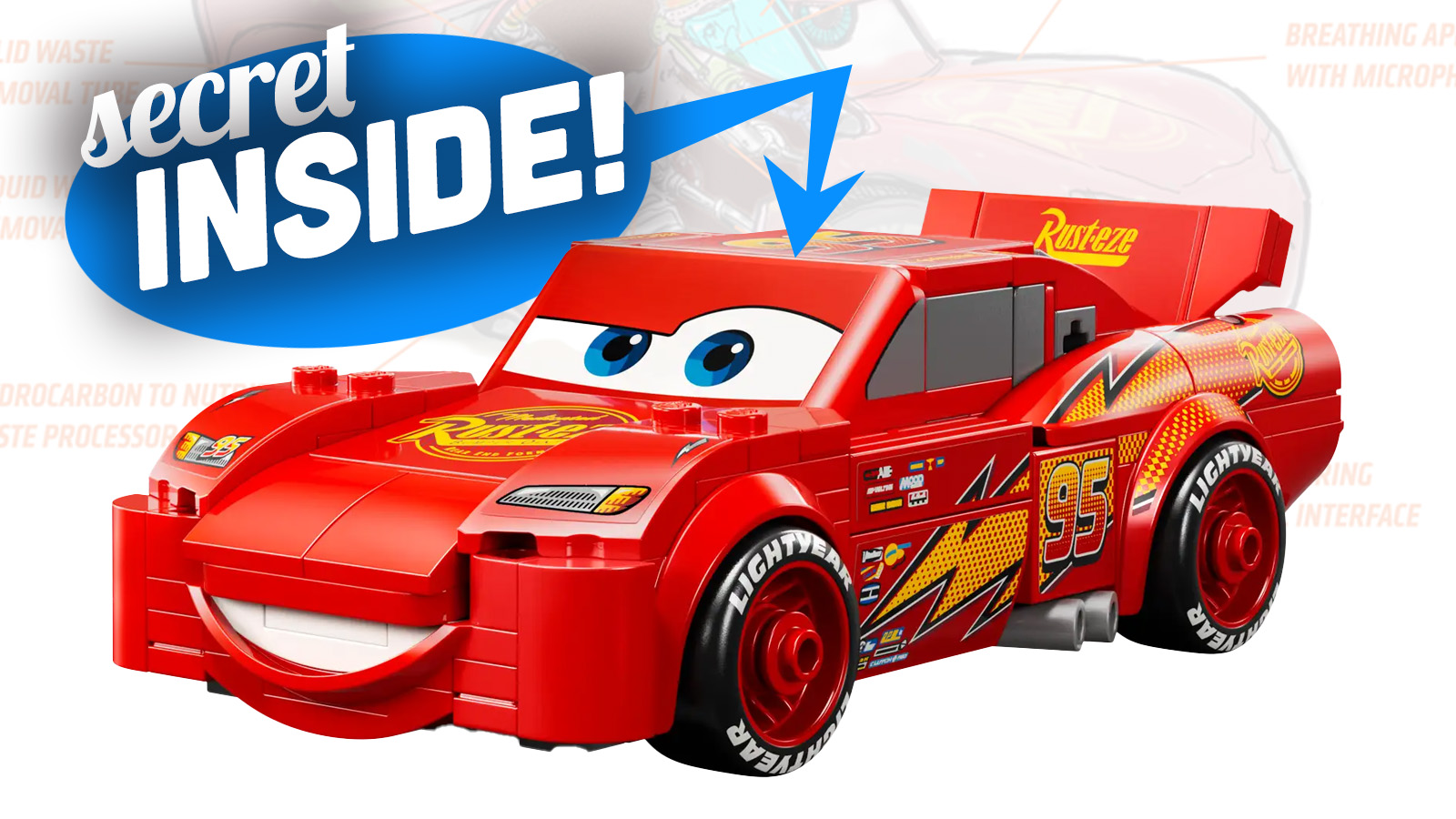I’m here in South Bend, Indiana because tomorrow I’m supposed to get some up-close time with the First Hybrid Motorhome, something predicted by Nostradamus in 1544 but never actually realized until now. South Bend was also the home of Studebaker, the covered-wagon concern that made the jump into automobiles, and they have a museum here. I had a few hours to murder today, so I went to the museum to extract every possible story idea possible from it, and boy, did it deliver.
Well, the dark basement delivered, because that seems to be where they stash all the really interesting things. I’ll try to show you all the good stuff I saw crammed in there, starting with a fascinating car — a styling prototype from 1963 that was designed and built with the non-trivial mandate of somehow transforming the Avanti sports car into a family sedan.
In 1961, Studebaker-Packard had a new president, and that president wanted an all-new lineup of cars, so to that end Brooks Stevens design firm was hired to work in parallel with Studebaker’s longtime design partner, Raymond Loewy’s studio, the one that came up with the original Avanti in the first place.

The original Avanti was designed with Loewy’s design team all holed up in a rented house in Palm Springs; Loewy decided to take a similar approach to this project, and two of Loewy’s designers, John Ebstein and Bob Andrews, were sent to Loewy’s Paris studio. They actually had to move to Lowey’s country house outside of Paris because the French designers all wanted in on an Avanti project, and there was constant Elvis music being blasted that drove the designers nuts.
They did end up getting to work, and in a remarkably short six weeks (it was 1962 by now) managed to come up with two new Avanti-inspired design concepts, a notchback and a fastback. Incredibly, both of these cars still exist, and both are now in the Studebaker museum, in the basement, shoved onto big car-size shelves.

(Studebaker Museum)
Both cars follow a styling mockup/prototype practice of having one door on one side, and two on the other, to show what both two- and four-door models would look like on one car. The two-door sides can be seen above, and here are the four-door sides:

(Studebaker)
The lower picture showing the fastback even features a proud Raymond Loewy himself! You can see some other trim detail differences between the two sides as well; for example, there’s a concave and conical air intake on the two-door side, while the four-door side has a convex cone to suck in air.
Of the two, the fastback one is stuck very high up and very hard to see, so I’ll be focusing more on the notchback, as I lacked a ladder and am many feet shy of being 12 or so feet tall.

It’s worth noting that this car was painted in what Raymond Loewy considered his favorite color for cars, a sort of metallic gold-beige. The front end definitely has Avanti hallmarks like no grille or air intakes above the bumper, and the recessed areas next to the headlamps appear to be paired sets of wide turn indicators/parking lamps.
The profile of this car also has a pronounced forward rake, in contrast to the Avanti, which had a swept-back front fascia.
But let’s look closer at the one we can see, the notchback:

That’s the four-door side. This has some crisp, handsome, clean lines and stately proportions, with a tall, upright and airy greenhouse. It feels formal and elegant, and the slight undulations in the beltline from fender to rear are quite elegant. I also like the chromed, thin pillars. It’s a very refined-looking car!

The two-door side retains the tall greenhouse, but somehow the windows feel even larger here. The rear window has an angled cut to it, making for a triangular-shaped C-pillar. It’s nice and clean, though I think the four-door side actually works better, proportionally. Also, someone needs to change that tire.

The front end features the Avanti grille-less hallmark look, with wide turn indicators doing all of the decorative work on the face. Also note the off-center narrow scoop with the Studebaker “S” set into it on the driver’s side. This sort of asymmetry was also an Avanti trademark, as the Avanti featured an off-center hood bulge in front of the driver.

There’s a slight forward rake here too, less pronounced than the fastback, but still imparting a sort of shark-nose bit of aggression. Not too much, just enough. I really like these clean, grille-free front ends, and while they don’t completely ape the Avanti, they definitely feel like part of the same family.

There’s also this odd badge on the notchback that I absolutely could not decipher – until I finally realized it said Pichon-Parat Paris, after the French coachbuilder that built these cars.
Studebaker was a company that was sort of notorious for everyone – including board members – wanting to be designers. Everyone seemed to have an opinion about everything, and while these two prototypes no doubt brought up a lot of interest and discussion, it was nevertheless decided that expanding the Avanti range to include more kinds of cars was not what Studebaker wanted to do.
In hindsight, I do wonder if a bolder design strategy from Studebaker, instead of focusing on the economy car Larks, could have given the company a market segment and niche it could have made work, and perhaps could have survived longer than the four years Studebaker had after these cars were built.
I guess we’ll never know, but somewhere out there is a parallel universe where Studebaker really leaned into the Avanti-inspired lineup, and we’re all happily driving Studebakers today.










Interestingly enough a 4 door was eventually produced under the Avanti II badge in 1990. Nothing to do with the original of course and only about 90 were actually built but still, incredible to think that after almost 30 years the design finally made it to (limited) production!
Was trying to read out the letters of Paris from the chrome badge. Seems to be Pichon Parat Sens instead. Makes sense I think
That front clip is so much better than the front of an Avanti.
Oh wow these are cool! I really like the fastback one! Given how long the avanti managed to stick around in production as a zombie it does make you wonder if these radical designs could have extended the company lifespan.
Torch, will you be in the Notre Dame stadium lot tomorrow trying to find the weirdest tailgate cars?
When I see Avanti, sometimes I get it mixed up with Amanti, of Kia fame. And then I have a picture of the Amanti stuck in my head, tormenting me as only the Amanti can.
Oh sick twisted mind, why do you play games with me?
I almost forgot about that want2be Benz.
But now you got it stuck in my head too….;(
Sorry about that.
I’ll have to make time to drop by on my next drive to or from Chicago. I spent a glorious afternoon at the Lane two years ago and would recommend the Crawford in Cleveland to anyone. The Washington PA Trolley Museum is great too.
If you do, add the Auburn Cord Duesenberg museum in Auburn. The downstairs cars are set in the original Art Deco showroom. One of the best I’ve been to.
Second that
Lots of excellent cars all over
And the next door museum of other cool oddball stuff
National Automotive and Truck Museum (NATMUS)
Couldnt recall the name, but is in the old factory.
Tons of neat stuff
At the the Avanti came out, Studebaker was well beyond the point where a new design direction could move the needle much in saving the company’s automotive division.
The Lark was developed on a shoestring budget by cutting down the existing full size car into a compact and proved surprisingly successful in the absence of direct Big Three competition, but the board knew that would be over as soon as GM, Ford, and Chrysler had compacts on the market, so they started investing the Lark profits in buying up other businesses to reduce the company’s reliance on cars.
They brought in Sherwood Egbert as CEO because he was from outside the automotive industry and figured he’d have no emotional connection to the car business and would continue it’s wind-down while diversifying. But, he ended up being a secret car guy who was absolutely delighted at the chance to rub his own car company and he threw himself all-in on trying to save it, with stuff like the Avanti and the Bonneville speed runs. The board probably would have lost patience with him anyway, but personal health problems intervened to cause him to take early retirement, and with Egbert out of the way, that was the end of the automotive division
Torch, I can’t believe you could mention the Avanti without crediting Tom Kellogg, who did the actual design work on the production coupe and, if I recall our later conversations correctly, had some input on the sedan projects.
Tom was a wonderful source of tidbits about Loewy and how much he did/did not have to do with designing the Avanti and, like several other deisgners I met who had worked in the Loewy studios, could do a devastating imitation of the man.
Not just a gifted car designer — I was able to go through his automotive portfolio, and some of his work was flat-out stunning — but also an extremely gifted industrial designer. He designed a tea service for Wedgewood, too, which to me was the ultimate tea set.
Really cool that you were able to talk with him and the other designers, thanks for sharing! I am curious, what was the tea set called? I tried searching Tom Kellogg and Wedgewood, but came up empty.
Sadly, I have no idea what the tea set was called. Tom had one, and I really, really wanted to find another. But my search came up empty. Years later, I was in Nassau with a girlfriend and she found a pot (minus cups, saucers, and accessories) but it was in an unattractive floral pattern (his was, I believe, plain, which suited it) and very expensive. So I’m still looking, but without much hope of success….
After a little more digging, I think I found it! Does this look like the right pattern? https://www.replacements.com/china-wedgwood-solar/c/114361
Indeed it does!
I see the prices have not gone down.
If you don’t mind a few chips on the lid, there’s a decent looking teapot on ebay for a lot less:
https://www.ebay.com/itm/304469727405?_skw=Wedgwood+225&itmmeta=01J8TFBAAZT1YK6M782T8QW3ZG&hash=item46e3cf58ad:g:H0oAAOSwzAVibsIY&itmprp=enc%3AAQAJAAAA0HoV3kP08IDx%2BKZ9MfhVJKlsl%2FBR3msYlNSBZQvnhQ3OwRd5UFCu1jqB5TuU4mJQKs7Y8qecq–c%2B0IbaqA20MwN1VyeBjDZt2Kw9%2B%2Bd7do7c93fNHNZ6Bqy5aa7xeh1n4olIkmzu%2FMTih2igfj6VR%2Bk7Qcwu%2F5ZS1grkbs7g2RawswgnhNY1eJ0BUomRGwYoiHdf3IZOwxTcJ4h%2BMH7sDzyohhcMmAEajGMPILDNdT7RPAvNmDpatuMFHTA7Dz0ngDig1j8sOfWbe0Y9AXLi%2BQ%3D%7Ctkp%3ABk9SR8ylrc_GZA
Oh my lord that’s gorgeous
Seems Wedgwood also did a black version going by name “Lunar, Shape 225” compared to the white one, “Solar, Shape 225”. Whether it was part of Tom Kellogg’s original design, or something Wedgwood came up with later, I don’t know, but it manages to be just as striking. Here’s the Lunar teapot:
https://www.ebay.com/itm/394983457254?_skw=Lunar+Shape+225&itmmeta=01J8VK1P6942ZQ1XB14GV6F5Z3&hash=item5bf6d941e6:g:SZwAAOSw13hlRzDS&itmprp=enc%3AAQAJAAAA8HoV3kP08IDx%2BKZ9MfhVJKk42%2B27fIlZPzV59jlcoDdDcypvfwBZ%2BjzTcmFZLwjrY7ehl7YAifccYgfaGfYd9rIfxyJg7LwVwNaRcNjHKnGJyiECps2mMbsbOlAYQ8zq2JqZ%2B%2F5cXxbavxJtJV%2BBenZy6UkAF8Sj9GjsBye2igX68HX5b2EHcizu%2FCfbj2kDK2qz2Bim1KG12f14ewSGJlcQoCRwgr4dylM2WLL62X1D9iNBIeAzIpJaMUIUVBEA9RicDngMxs3NiTQy57JzE0a5sxTv0nbyhbQUO820UZQy8VdQZWJeyv%2BZtWNbh5PEVw%3D%3D%7Ctkp%3ABk9SR67jhvPGZA
Had Studebaker and Packard joined AMC (the most stupidly missed business opportunity in automotive history), this car probably would’ve been built.
When failing companies merge that is usually turns out to be more of an anchor than a lift.
Or, they could’ve succeeded and bought Chrysler in 1988.
Studebaker and Hudson were the odd ones out. Both of those companies were probably terminal cases by 1954, but James Nance at Packard didn’t want to work with George Romney at Nash-Kelvinator, and Studebaker was bigger than Hudson and had cooked the books to make themselves seem healthier than they were. And that left Hudson as the only merger option for Nash
George Mason had wanted Packard as a luxury brand for American Motors, but it probably would not have worked out if it meant bringing Studebaker into the picture along with them, they inherited more than enough problems with Hudson as it was
I wonder if there’s a market for automotive multiverse books where authors explore these what-ifs.
Same for aerospace, where someone with power says no to the Boeing-MD merger.
Interesting premise but I’m not sure these companies were not beyond hope regardless. Look how close each of the Big 3 has been to the brink in the last 50 years. Would their shared fate have been any better then Chrysler’s (which relied heavily on the Jeep nameplate in it’s ’90s resurgence to relevancy). Just delaying the inevitable.
The Avanti should’ve been a shooting brake. The fastback comes close, but not enough roof. Thanks for the peek in the basement.
Oh man. A sport wagon like the 1800ES. You nailed it. Bishop, get on a sketch.
Couldn’t agree more!
I’ve had the same thought since I first saw an 1800es and became shooting brake aware.
Used to see a gold Avanti from the school bus pretty often and thought it was the coolest thing ever
Better than the basement at the Alamo
Came to the comments section for this – well done!